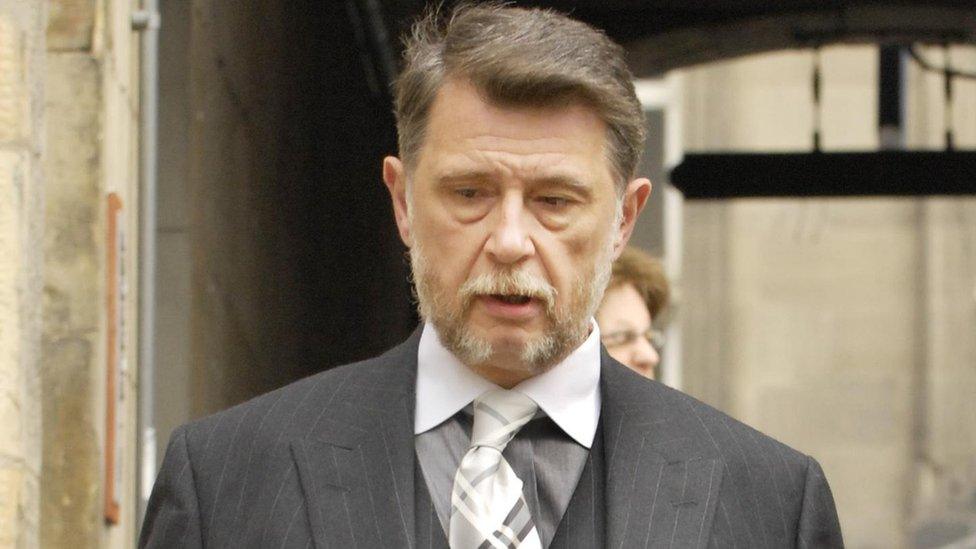Taxpayer-funded legal aid payments fell to £124.4m last year
- Published

Donald Findlay QC saw his legal aid earnings rise by 7% last year
Scotland's legal aid bill dropped by more than £10m to £124.4m last year, new figures have revealed.
Donald Findlay QC topped the list for payments in the Scottish Legal Aid Board's annual report, external, earning £389,000 - an increase of £27,000 on last year.
There were 8,000 fewer applications for the taxpayer-funded legal assistance last year.
The fall in payments is down to a drop in recorded crime and an increase in alternatives to court prosecutions.
The Scottish Legal Aid Board's (Slab) annual report shows the total cost to the taxpayer of legal assistance in 2017-18 was £124.4m, down from £135.7m in the previous year and £138.6m four years ago.
Criminal legal assistance accounted for £74.1m of last year's expenditure, down from £85.4m in 2016-17.
Falling crime rates
There were 244,504 crimes recorded by the police in Scotland in 2017-18, a slight increase on the previous year but still the second lowest level of recorded crime since 1974.
Slab's chief executive Colin Lancaster pointed out that funding for Scotland's legal aid system was demand-led rather than tied to a fixed budget, so falling cases numbers would continue to impact on law firms' incomes.
He added: "The 13% fall in criminal payments to the profession this year comes on the back of several years of falling expenditure.
"This is not because of a reduction in funding or in the level of fees, rather it reflects a very significant and long term fall in reported crime and the increasing availability and use of alternatives to court prosecution."
Mr Lancaster said legal firms needed to get used to a legal aid environment of "lower business volumes and lower overall expenditure".
The Slab data also shows Mr Findlay's £389,000 earnings last year were up by £101,000 from his payments in 2015-16.
The second highest earning advocate was Brian McConnachie QC, who was paid £308,000 in fees last year, up 16% on 2016-17.
The biggest increase among advocates came for John Scullion QC, who saw his fee income jump 94% over the last year to £261,000.